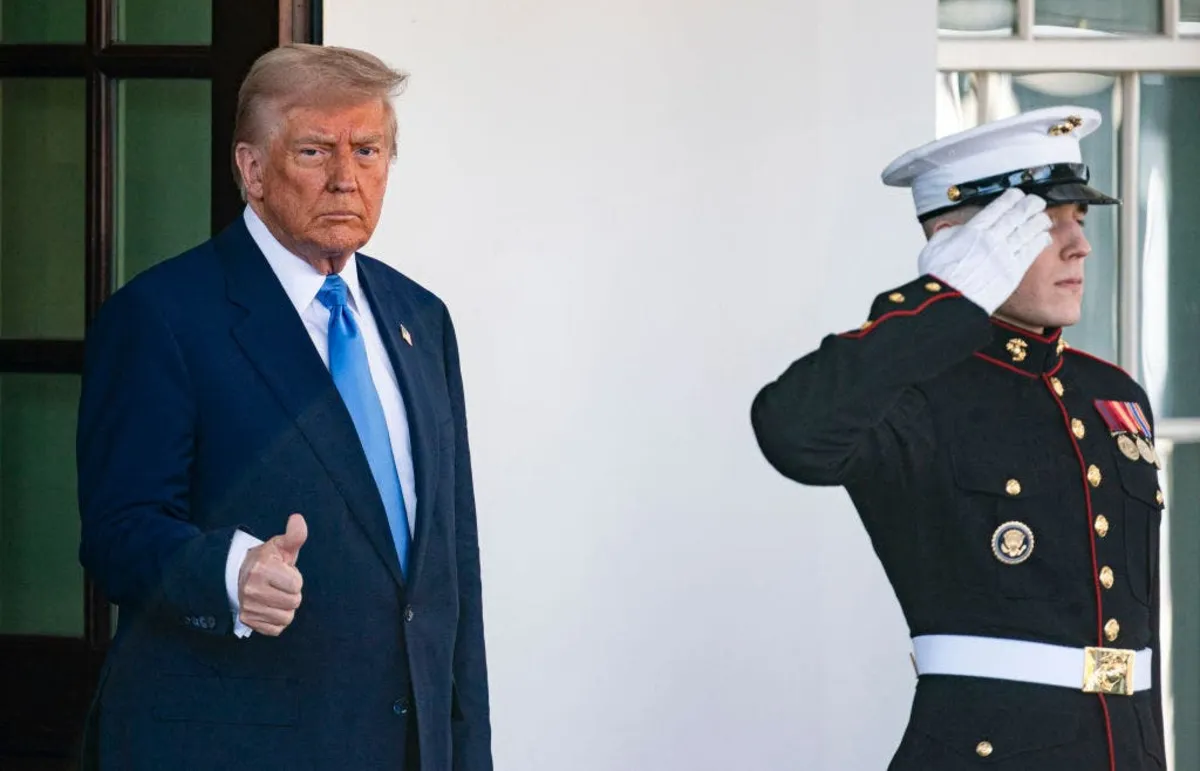
A federal appeals court in Washington, D.C., delivered a temporary victory to the Trump administration on Friday by overturning district court rulings that had mandated the reinstatement of two key figures: Gwynne Wilcox from the National Labor Relations Board (NLRB) and Cathy Harris from the Merit Systems Protection Board (MSPB). This ruling halts their reinstatement while the case continues to develop.
Earlier this month, U.S. District Judge Beryl Howell ordered the reinstatement of NLRB member Gwynne Wilcox after her dismissal by President Donald Trump earlier this year. Wilcox initiated legal action on February 5, 2023, in a D.C. federal court, asserting that her termination on January 27 violated the congressional statute governing NLRB appointments and removals.
In a letter to Wilcox, President Trump cited her firing as necessary due to the NLRB's failure to operate in alignment with the objectives of his administration. He pointed to several recent board decisions, claiming Wilcox was favoring labor interests over those of employers. On February 10, Wilcox sought a summary judgment to expedite her case, and following a hearing on March 5, the district court ruled in her favor, allowing her to remain a member of the NLRB.
In a parallel case, Cathy Harris, a Democrat and former leader of the MSPB, contested her termination, arguing that Trump lacked the authority to remove her. Unlike Wilcox, Harris did not receive a letter from the president detailing her dismissal. She filed her lawsuit on February 11, 2023, and subsequently received a temporary restraining order that reinstated her position at the MSPB.
Judge Howell acknowledged that the case seemed to transcend his court's jurisdiction, remarking that for both parties, the court serves merely as a "speedbump" on the path to the Supreme Court. D.C. Circuit Court judges Justin R. Walker and Karen LeCraft Henderson provided concurring opinions emphasizing that the Supreme Court's precedent regarding the president's removal authority over agencies with significant executive power heavily influenced their ruling.
Both the NLRB and MSPB are classified as executive branch agencies, and the judges noted that Congress cannot limit the removal powers of the president over these entities.
In a dissenting view, D.C. Circuit Court Judge Patricia A. Millett criticized the majority ruling, arguing that it contradicts established Supreme Court precedent and creates discord with at least two other circuit courts. She expressed concern that this decision marks a historic allowance of the firing of members from multi-member adjudicatory boards, which are typically protected by statutory removal restrictions upheld by the Supreme Court.
Millett described the majority's rationale as alarming, indicating that it could jeopardize the constitutionality of numerous federal laws that condition the removal of officials on multi-member decision-making bodies. She emphasized that such a significant change in legal interpretation should not be made hastily, warning that it could leave millions of employees and employers in a state of legal uncertainty.
The recent appeals court ruling represents a pivotal moment in the ongoing legal battles surrounding the Trump administration's authority over federal appointments and removals. As this case progresses, the implications for the NLRB and MSPB, along with the broader legal landscape regarding executive power, remain to be seen.
For ongoing updates on this case and other related legal matters, stay tuned to our news coverage.